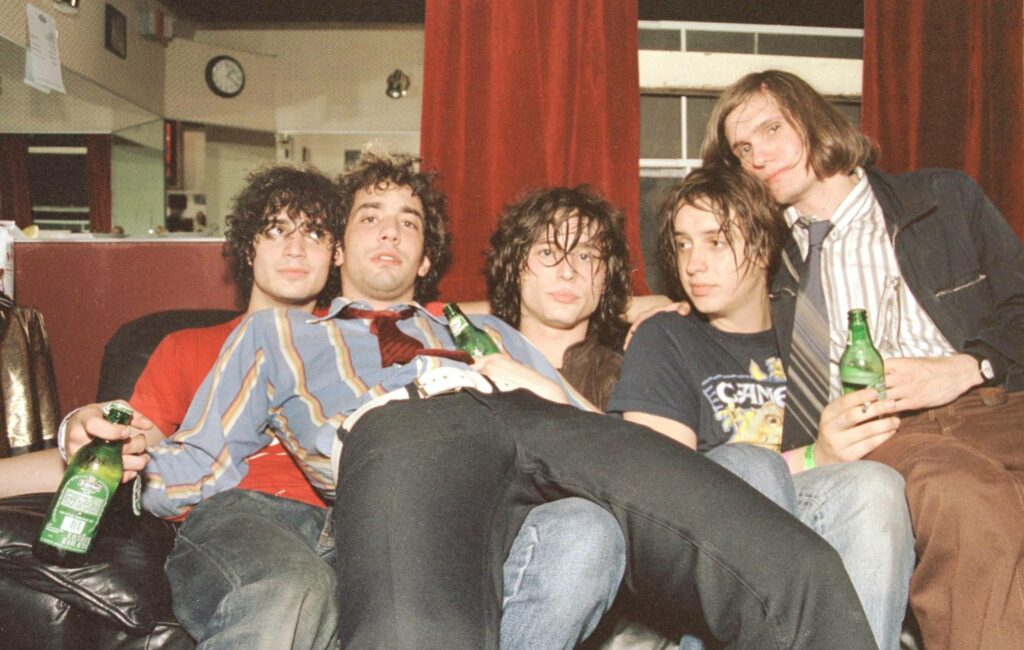Meet Me In The Bathroom: the story behind 2023’s most anticipated rock doc
Directors Will Lovelace and Dylan Southern on bringing Lizzy Goodman's acclaimed book to the big screen
By Nick Reilly

The directors behind Meet Me In The Bathroom have opened up on how the film offers an extensive look at the origins of New York City’s huge influential music scene in the early 2000s.
Directed by Will Lovelace and Dylan Southern, the film is an adaptation of Lizzy Goodman’s 2017 book, which focuses on the city’s indie scene of that time, when bands like LCD Soundsystem, The Strokes, Yeah Yeah Yeahs and The Moldy Peaches reigned supreme.
While it’s understandable that The Strokes – the biggest band of that scene – sit front and centre, the film also features fascinating insights from figures such as YYYs singer Karen O who opens up in depth about how music allowed her to escape the challenges of everyday life.
But the film also appears to capture a specific moment in time, with many believing the scene to be one of the last to organically emerge before the full rise of the internet and modern technologies.
“Part of what Will and I discussed a lot was whether a scene could emerge as organically and in a single place in a specific time as that scene did, especially in a city like New York that has such rich musical heritage and where some of these bands owe a great debt to those who have gone before,” said Southern.
“Exciting stuff is still happening now, but it doesn’t necessarily happen in the same way. This took place on the cusp of huge cultural change, technological change and political change that none of us saw coming.”
He added: “One of the things that appealed to us about the story is that there’s a weird innocence to it. It’s untouched by the way the world is now. If you’re making a film about a band now you’d have a lot more archive to deal with and it wouldn’t be as special.”
It’s reflected in the film’s opening shot – a charming moment which captures an early rehearsal from The Moldy Peaches – the anti-folk pioneers founded by Adam Green and Kimya Dawson.
“We sort of looked at the whole thing as a series of coming of age stories and what we loved about the Moldy Peaches and that footage is that it felt like two people just sort of discovering New York and trying to find their place in the big city,” said Lovelace.
“I think it really did feel like there’s just two people, you know, wandering the streets trying to find the place that where they fit it in and it, and it has a certain kind charm to it.”
That charm extends to the whole film. The pair say that tackling the youthfulness of the scene was always at the centre of their ambitions.
“We were so interested in drilling down into the first three years of the scene because it’s really the origin story,” said Southern.
“My favourite things to read in music biographies or films are those serendipitious things that bring like-minded people together to make things that go on to make an impact that’s bigger than they could have expected. For us, it was this moment of youthfulness and anything being possible.”
But ultimately, there are darker moments too. The spectre of 9/11 looms large and is even seen in footage captured by Interpol’s Paul Banks. It reflects a societal loss of innocence, but also a wider feeling that the scene was a one-off beast that, due to the world moving on, could never happen again.
“We wanted to project that onto the world outside, because we have that whole sequence which is the sort of manufactured fear of the millennium and the Y2K bug, this is something people think they know about it and everyone’s frightened of this thing but it was never going to do anything,” explained Southern. “And then the real monster comes unexpectedly in the form of 9/11.”
“I think that’s part of growing up as well, it reflected a wider sense of loss. There’s a bit at the end where Albert says you have this thing and you don’t realise you have it at the time and then you lose it and then you spend a lot of years chasing it trying to get it again and you can’t.
“I think that was kind of a feeling we wanted to have in the film that, you know, the scene was full of these great times when anything seems possible and you have the best friends of your life and stuff, but they are kind of fleeting and we needed to show that.”
Meet Me In The Bathroom is in cinemas now.
